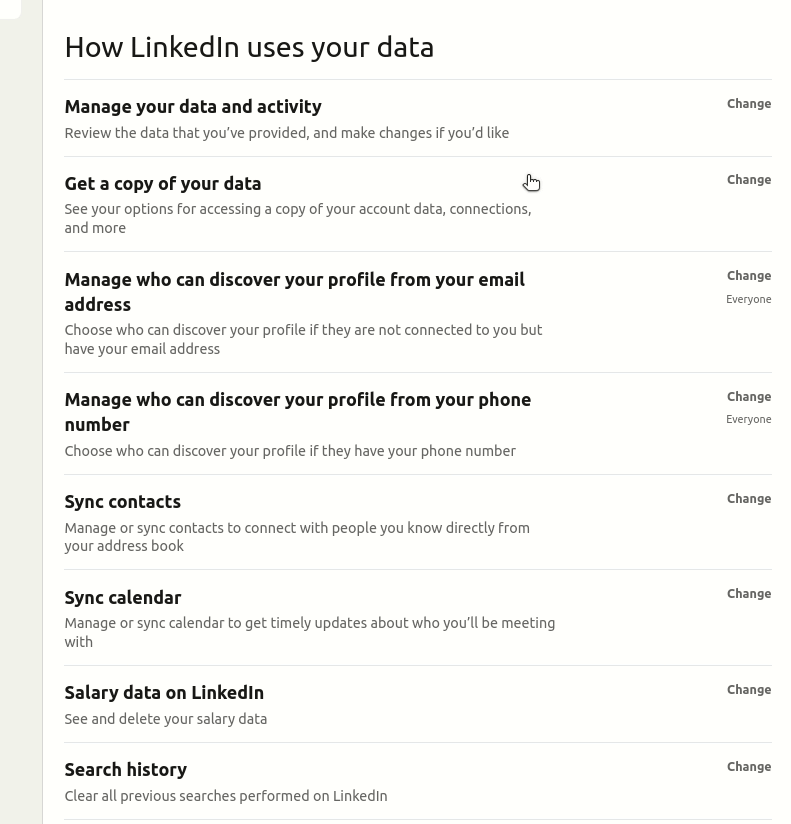Table of Contents
Imagine waking up one day to find your social media accounts, which took years to build, wiped out overnight. No warning, no explanation—just gone. It’s the nightmare scenario no micropreneur wants to face, but it’s happening more often than you might think.

For seven years, Ilias Anwar’s media company captivated millions across Instagram. Then, in an instant, his account was deleted. The community he nurtured, the campaigns that fed thousands, and the connections made—all jeopardized by the fragility of digital platforms (from LinkedIn to Instagram).
It’s a stark reminder that we can no longer afford to be solely dependent on these platforms. We must take control of our digital assets, and that means rethinking how we store, manage, and publish our content.
The Problem with Platform Dependency
The most common advice for managing your online content typically revolves around publishing with tools like HubSpot, Buffer, or even Hootsuite. Of course, there are many other new tools available, but they all generally enable you to schedule and manage posts across multiple social media platforms through their platform.
Convenient? Yes. Foolproof? No.
The problem is that these tools are still tied to the very platforms that can fail you. Your content, your community, your influence—all at the mercy of algorithms, policies, or even whims of platform operators.
But there’s a better way—a way to future-proof your micro-empire — that allows you to be combine existing behaviors with behaviors you need for the future.
Taking Control: Hosting Your Content

A preview of how I track social posts in Notion
I’ve started “hosting” my content in Notion, a knowledgebase tool that’s become my source of truth. You might have your own version (e.g. Confluence, Notes, GitBooks, etc.).
Note: What matters here is taking note of where you spend the most time documenting your work. Then finding a way to manage your content (then publishing from) there.
So everything I create—whether it’s blog posts, social media content, or strategic plans—is stored in my own Notion databases. And I use Notion to manage almost everything these days — including my multiple projects and ventures.
I then use a tool called Notion Social to schedule posts across various platforms, which is integrated straight into Notion.
Why? Because this approach gives me much more control than other popular solutions.
Notion Social doesn’t host anything—it simply relays my content to LinkedIn, Twitter, Instagram, and beyond, straight from Notion. If one of these platforms goes down or decides to suspend my account, I’m not left empty-handed. I still have a copy of all my content, safe and sound, ready to be published elsewhere.
And it doesn’t stop there. I track every piece of content I publish—likes, comments, views—right from within Notion. This isn’t just about safeguarding against platform failures; it’s about mastering the full lifecycle of your content, from creation to analytics, all under your own roof.
Now, there is still the possibility of Notion going down. But I address that through a blockchain-based solution later on (which may take around 15 more years). Keep reading though.
Exporting & Backing Up: A Lifesaver for LinkedIn
For LinkedIn, in particular, I’ve taken an extra precaution (because of what I shared in Issue #109, where LinkedIn suspended my own account). Every few months, I export my content and data—a feature tucked away in LinkedIn’s settings. This ensures that even if LinkedIn pulls the plug on my account, I’ve got a record of my connections, post history, and data, ready to be deployed elsewhere.

This approach isn’t just about technology—it’s about a mindset/paradigm shift. It’s about thinking of your content as something you own, not something you lease from social media giants — but something they eventually should lease from you.
It’s about recognizing the risks of digital dependency and taking proactive steps to protect your micro-empire.
Future: A Blockchain-Enhanced Notion?
This leads us to a broader vision—one I first explored during my blockchain days. Imagine Notion, not just as a productivity tool, but as a “super wallet” powered by blockchain. Every note, document, and asset you store would be an immutable entry on the blockchain, ensuring absolute data integrity and security.
In this Blockchain-Based Notion (BBN), your digital assets wouldn’t just be stored—they’d be protected, verified, and even monetized through nano-payments. Your content would no longer be at the mercy of any one platform. Instead, it would be part of a decentralized, transparent ecosystem, where every interaction is recorded like a timestamp on the blockchain.
Such a tool could transform how we manage our micro-empires, turning Notion into a secure vault for all our digital assets, with the added benefits of blockchain’s decentralization, transparency, and security. Read more below:
The Road Ahead: Embracing the Shift
As micropreneurs, we must recognize that the future of our businesses depends on how we adapt to these challenges. We must embrace tools and technologies that give us control, protect our assets, and provide the flexibility to pivot when the digital landscape shifts under our feet.
The path won’t be easy. It requires a behavior shift—a change in how we think about content, where we store it, and how we publish it. But with the right mindset and the right tools, we can turn these challenges into opportunities, safeguarding our micro-empires against future uncertainties.
Remember, it’s not about chance—it’s about spotting opportunities amidst the noise. And when the next big tech synchronicity emerges, you’ll be ready to seize it.
So, the next time you create content, think beyond the platform. Think about where it’s stored, how it’s protected, and who really controls it. Because in the end, the security of your micro-empire depends on the decisions you make today.
The tools are here. The opportunities are clear. The only question is, are you ready to take control?



